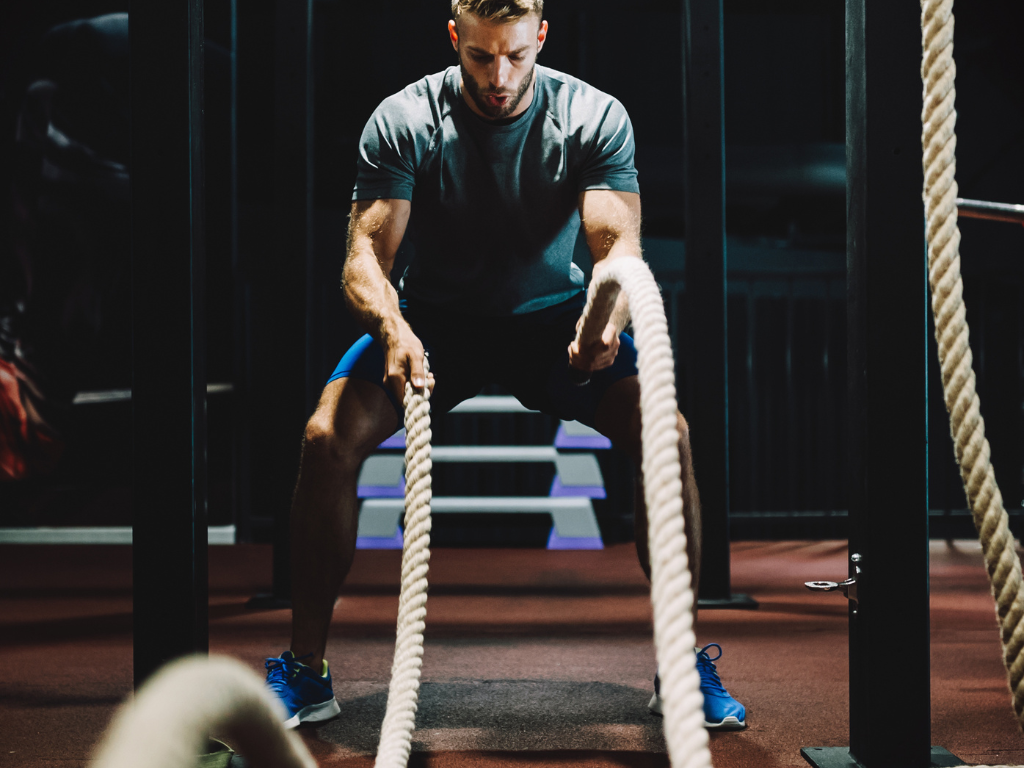
Are you new to the world of pre-workout supplements and wondering how long it takes for them to kick in? Pre-workouts are a popular choice for gym-goers looking to increase their energy, focus, and endurance during workouts. However, the timing of when you take your pre-workout can have a significant impact on its effectiveness.
First, it’s important to understand what pre-workout supplements are and how they work. Pre-workouts typically contain a blend of ingredients such as caffeine, beta-alanine, and creatine, which work together to provide an energy boost, increase blood flow to muscles, and delay muscle fatigue.
However, the timing of when you take your pre-workout can affect how quickly it gets absorbed into your bloodstream and starts working. In this article, we’ll explore the factors that affect pre-workout timing and how you can optimize your pre-workout routine for maximum results.
Key Takeaways
- Timing of pre-workout intake can affect its effectiveness.
- It is recommended to drink water before taking pre-workout supplements.
- Taking pre-workout supplements on an empty stomach or after a light meal is recommended.
- Eating a high-carbohydrate meal before taking pre-workout supplements can improve endurance and energy levels.
Understanding Pre-Workout Supplements
Looking to boost your workout performance? Try pre-workout supplements! These supplements are designed to give you the energy and focus you need to achieve your fitness goals.
There are many different types of pre-workout supplements available on the market, each with its own unique blend of ingredients. Some of the most common types of pre-workout supplements include caffeine, beta-alanine, creatine, and nitric oxide boosters.
If you’re new to taking pre-workout supplements, it’s important to follow a few dos and don’ts. First, always read the label and follow the recommended dosage. Taking too much pre-workout can lead to negative side effects, such as jitters, nausea, and headaches.
It’s also important to stay hydrated while taking pre-workout, as many supplements can cause dehydration. Finally, it’s a good idea to cycle on and off pre-workout supplements to prevent your body from becoming too dependent on them.
By following these tips, you can safely and effectively incorporate pre-workout supplements into your fitness routine.
Factors Affecting Pre-Workout Timing
Factors such as hydration, meal timing, and individual tolerance can significantly impact the timing of pre-workout effectiveness.
Hydration is essential for optimal bodily functions, and dehydration can affect the absorption of pre-workout supplements. It’s recommended to drink at least 16-20 ounces of water 30 minutes before taking pre-workout supplements.
Meal timing can also affect the timing of pre-workout effectiveness. It’s recommended to take pre-workout supplements on an empty stomach or at least 30-45 minutes after a light meal to avoid any digestive discomfort.
Caffeine tolerance and food intake are two other factors that can impact pre-workout timing. Caffeine is a common ingredient in pre-workout supplements, and some individuals may have a higher tolerance for it than others. It’s recommended to start with a smaller dose and gradually increase it to avoid any negative side effects.
Moreover, food intake can also affect pre-workout timing. Eating a meal high in carbohydrates before taking pre-workout supplements can help improve endurance and energy levels during a workout. However, it’s essential to avoid heavy meals that can cause digestive discomfort and delay the effects of pre-workout supplements.
Optimizing Pre-Workout for Maximum Results
To get the best results from your pre-workout routine, it’s crucial to optimize your supplement intake and consider your individual needs.
One important aspect to consider is pre-workout nutrition. Ideally, you should consume a meal or snack containing carbohydrates and protein 30 minutes to 2 hours before exercising to provide your body with the necessary fuel to perform at its best.
Additionally, you may want to consider taking supplements such as creatine or beta-alanine, which have been shown to improve performance in high-intensity exercises.
Another crucial factor to consider is hydration. Dehydration can negatively affect your performance, so it’s important to make sure you’re well-hydrated before your workout. Aim to drink at least 16-20 ounces of water 2-3 hours before exercising, and continue to sip water during your workout.
If you’re exercising for longer than an hour or in hot weather, you may want to consider a sports drink to replenish electrolytes lost through sweat.
By optimizing your pre-workout nutrition and hydration strategies, you can maximize the benefits of your pre-workout supplement and perform at your best.
Conclusion
Now that you know how long it takes for pre-workout supplements to kick in, you can better plan your workout routine and optimize your pre-workout intake.
Remember that individual factors such as body composition, metabolism, and tolerance levels can affect how quickly the supplement takes effect. It’s essential to follow the recommended dosage and wait at least 20-30 minutes before starting your workout.
To maximize the benefits of pre-workout, it’s also crucial to maintain a healthy diet and lifestyle. Eating a balanced diet and staying hydrated can help improve the effectiveness of your pre-workout supplement.
Additionally, combining pre-workout with a consistent exercise routine can help improve physical performance and overall health. By understanding how pre-workout supplements work, you can make informed decisions about your fitness goals and achieve optimal results.
Remember that supplements should not replace a healthy lifestyle, but they can help enhance your workout routine when used appropriately. Keep these tips in mind, and you’ll be on your way to achieving your fitness goals.
Related Articles:
Does All Pre-Workout Have Testosterone?
Does Pre-Workout Work For Girls?
Does Pre-Workout Mess With Anxiety?
Is It Better To Avoid Pre-Workout? When Should I Avoid Taking Pre-Workout?
Is Pre-Workout Actually Healthy?
5 Best Supplements For Bulking: Full 2023 Review!
What Happens To Your Body When You Start Taking Vitamins!
Is Nature’s Bounty A Good Brand? Nature’s Bounty Full 2023 Review
